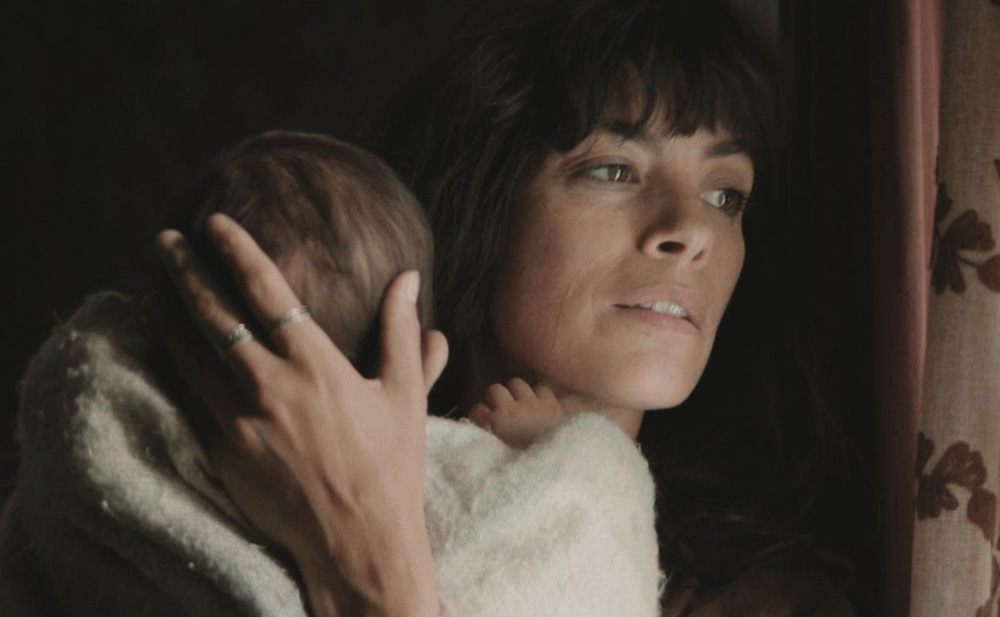A bit more context upfront might be helpful to fully appreciate what Cesar Diaz has done in “Mexico 86,” a worthy follow-up to his 2019 international breakthrough “Our Mothers.” Details are intentionally scant when the film starts out in Guatemala City in 1976 as sirens, gunfire and a baby’s scream play out against a black screen and within moments you witness Maria (Bérénice Bejo) being faced with an impossible choice after reaching her mother Eugenia’s (Julieta Egurrola) house, asked to give up her infant son Marco to live in safety in Cuba in order to continue to her work as a member of the guerrilla Guatemalan Liberation Army to undermine the brutal dictatorship that’s taken control of her home country. A quick-cut montage of documentary footage outlining their oppression offers reason enough for Maria to contemplate sending her son away and to leave for Mexico herself, but when part of their tyranny extends to the present day in what little is known generally outside of Guatemala about the war crimes committed during the military-led regime, the fact that audiences abroad might have questions about what exactly she’s fleeing without a more explicit title card inadvertently shows what Diaz is up against as a storyteller, given the great lengths the since-deposed leadership went to cover it up.
In “Our Mothers,” Diaz confronted this issue quite directly in tracking an anthropologist assigned to identify the bones found in unmarked graves of those who died during the civil war, but in “Mexico 86,” the director has to convey an even more imperceptible kind of loss when following Bejo’s activist to Mexico where serving the greater good has come to upend her own life and her family. Able to continue her role in the revolution from afar, Maria rechristens herself as Julia, a copy editor for an influential magazine where she hopes to plant the seed for a damaging story to the government involving “death diaries” they kept of political adversaries they killed. Guatemalan authorities never seem to be more than a stone’s throw away, threatening relatives of Maria and Miguel (Leonardo Ortizgris), her partner on the ground, yet the real concern for Julia comes from within her own family when the decision to leave Marco in her mother’s care rather than send him away to Cuba has come back to haunt her when Eugenia is feeling her age and becoming unable to keep watch over the now-10-year-old.
As excited as Maria can be upon seeing both her mother and her son after they make their way to Mexico, there’s a cruel irony in bringing the family together in order to observe how they’ve been torn apart by forces entirely out of their control and while Diaz can craft a ‘70s-style paranoid thriller when his lead’s work is essentially that of a spy (and Bejo, with a Jean Seberg-esque bob, delivers a tender movie star turn), the real tension in “Mexico 86” comes from the scenes between Marco and his mother who can’t express to each other what they’re really feeling for different reasons of age and experience, making the exercise of engaging as a family feel like it’s as much of a put-on as any of Julia’s undercover work at the magazine. Although the film ends up sitting neatly alongside his previous film, Diaz may strike some as an unusual fit for the material when he has a real elegance as a storyteller, defying the gritty treatments usually associated with historical-based dramas from this region and this era in favor of something more abstract and mournful.
It isn’t difficult to see how an early scene when Eugenia announces why she can no longer take care of Marco and the mariachi band playing near their table at the restaurant begins to play a sad ballad could play as a little too pat to some, but the graceful connection of a larger cultural heaviness tied to an individual tragedy exemplifies the quiet power of Diaz’s work, offering cogent expressions of how personal cataclysms that could never be part of the public record before contributed to the national mood and ability to move forward. In that respect, “Mexico 86” feels like a major step for both Diaz and his country for bringing to light a time destined to stay in darkness otherwise.
“Mexico 86” does not yet have U.S. distribution.




